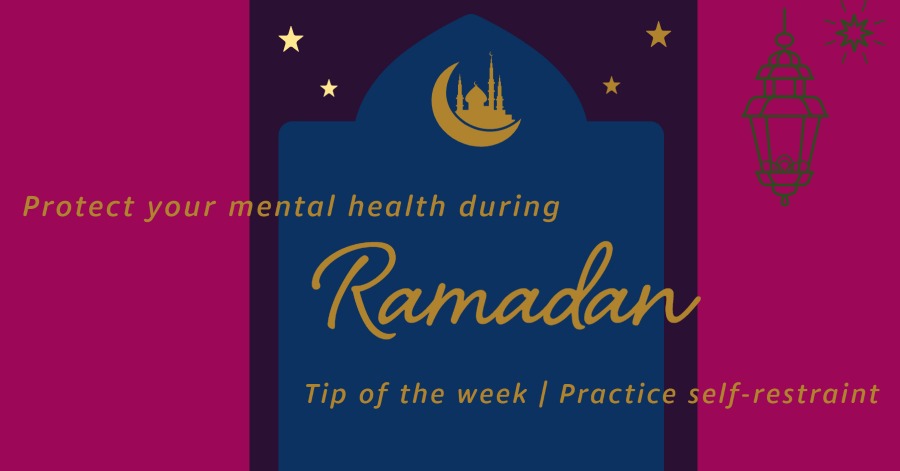
Tip of the week | Practice self-restraint
This is our third communication and we are back this week to share with you some more pointers and resources to help you care for your mental health and wellbeing throughout the Holy month of Ramadan. Last week, we focused on caring for others and sharing your blessings with your loved ones and those who are less fortunate than you. This week is all about self-restraint. Stay tuned over the next couple of weeks through to Eid for more messages on reflection, meditation, self-actualization, gratitude and hope.
![]()
Practice self-restraint this Ramadan
Ramadan is a month that teaches discipline and self-restraint. This year, as the COVID-19 pandemic persists, practicing self-restraint can help you as well as those around you stay healthy, safe and well.
Here are some pointers to help you practice self-restraint this Ramadan.
Follow public health guidelines
Traditionally Ramadan means spending time with family and friends, keeping and breaking your fast together. This makes it all the more difficult to distance yourself from loved ones and stay home for long periods of time, as well as avoid or minimize exposure to crowded public places and closed spaces including places of worship. Remind yourself that by practicing self-restraint and following public health guidelines, you are protecting yourself and others, especially vulnerable groups like older people and people living with chronic conditions, like cancer, diabetes, lung and heart disease. It is not only important to get vaccinated but to also encourage others around you to get vaccinated. Remember, no one is safe until everyone is safe.

Spread facts not rumours
Help put a stop to rumours this Ramadan. There are so many rumours surrounding COVID-19 vaccines and safety. Remember that like all vaccines, COVID-19 vaccines go through a rigorous, multi-stage testing process, including large trials that involve tens of thousands of people. Because the clinical trials took place in the middle of the pandemic with many people getting exposed, it was easier for clinical trials to see if the vaccines worked or not. These trials, which include some groups at high risk for COVID-19, were specifically designed to identify any common side effects or other safety concerns. Share this information about COVID-19 vaccines and safety to put a stop to rumours. Make sure you only share information from credible sources like WHO or your local health authority.
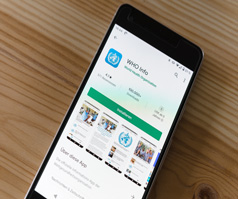
Proactively limit your exposure to news
Consider limiting your exposure to news coverage and monitor the time you spend on social media. Remember to get your news from credible sources like WHO and your local health authority, as well as mainstream media channels, especially when you are looking for news about the COVID-19 pandemic. Reducing your information overload helps lower the levels of worry and anxiety.
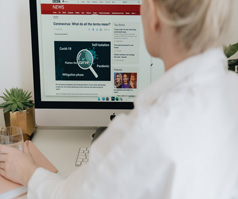
Adopt healthy behaviours
It is important, especially during Ramadan to maintain a healthy lifestyle. Our physical health is closely connected to our mental health so maintaining a healthy and active lifestyle will help you lower your stress levels and boost your mood.
Stay physically active and resist the urge to put activity off. Physical activity has specific health benefits for your heart, body and mind. Popular ways to be active include walking, cycling, wheeling, sports, active recreation and play, and can be done at any level of skill and for enjoyment by everybody.
Practice self-restraint and do not over-indulge in iftar and suhoor. Enjoy your meal and avoid overeating by eating slowly. Drink plenty of water and eat hydrating foods between iftar and suhoor. In general, avoid fried and processed foods high in fat, salt or sugar.
Ramadan is also an opportunity to quit smoking. You stop smoking for 15 hours during the day so why not keep it going for 24 hours and more!
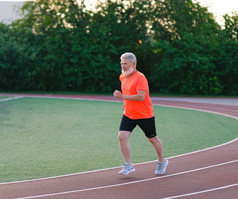

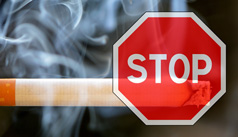
Protect your mental health: Mental health platform
We have resources to help you protect your mental health because you cannot take care of anyone if you do not take care of yourself. Try our online mental health and psychosocial support platform. You’ll find information about stress and how it affects us, and exercises you can try to relieve this stress. It also has contact information for mental health experts in each of the countries of the Region. Talking can help and those professionals are there to help you.


